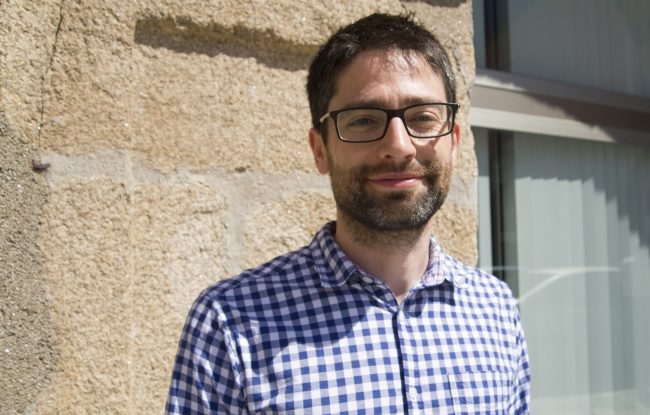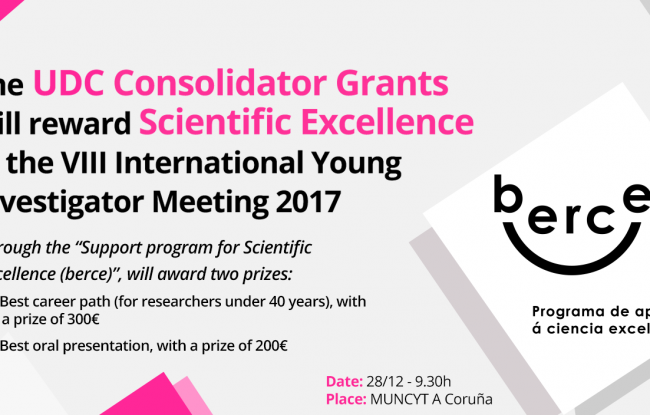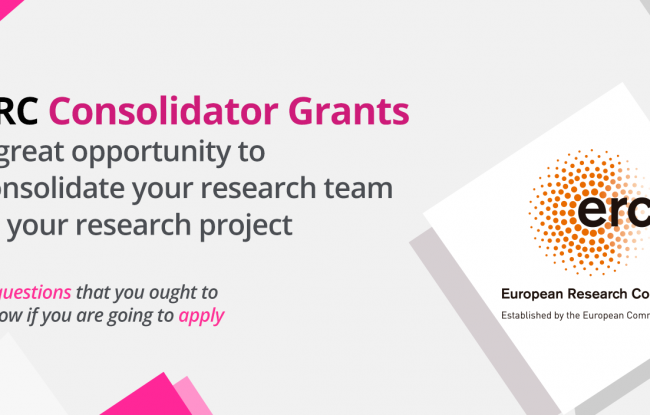Carlos Gómez Rodríguez is an Associate Professor at the University of Coruña in the field of Computer Science and Artificial Intelligence. He teaches in the Faculties of Computer Science and Philology and has recently been awarded a Starting Grant from the European Research Council (ERC).
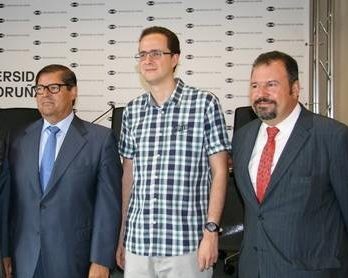
From left to right: Julio Abalde, rector, Carlos Gómez, winner of an ERC Starting Grant and Salvador Naya, vicerector.
Carlos Gómez’s research work focuses on natural language algorithms, both from theoretical and practical points of view.
We spoke to him to find out more about his project, about his recent ERC grant and about the potential of the UDC.
1. For those who are unfamiliar with Artificial Intelligence and computer language, what does your research project aim to achieve? What differentiating factor does it have with regard to other similar projects?
The ultimate aim of processing natural language is to develop computer programs which give machines the capacity to understand human languages. This would allow us both to communicate with them in our language and also to process the enormous amount of textual information available on the Internet. To achieve this, syntactic analysis i.e. the analysis of sentence structure, is a step that we must take. For example, this structure tells us that the sentence “Peter ate an apple” is expressing that the action of eating has happened, the person who did the eating (the subject) was Pedro, and what was eaten (the object) was an apple: it allows us to understand the meaning of the text.
In recent years, syntactic analysis algorithms have appeared which can do this with good levels of accuracy for use in applications such as automatic translation, information extraction or summary generation; but there is still one significant limitation: speed. These algorithms are too slow to be applied across the web, which limits potential applications such as web searches, or real time monitoring that can understand the required content.
The FASTPARSE project aims to eliminate this limitation by radically improving the speed of syntactic analysis. In this way, it can be used across the web and make applications possible which are currently beyond our reach or can only be carried out by companies with huge computational resources. This is our differentiating factor: although syntactic analysis has been tackled before in terms of accuracy, and until very recently was not viable for practical applications, this is the first project that puts the focus on speed.
2. The European Research Council (ERC) has awarded you a Starting Grant to fund your project with 1.5 million euros. What does that mean for your research career?
It is an huge boost. On one hand, carrying out a project such as this without this funding would be simply impossible as it allows me maintain a research team for the 5 year duration of the project, as well as covering other costs such as equipment and research trips. However, besides the economic aspect, the international prestige it gives us is also important.
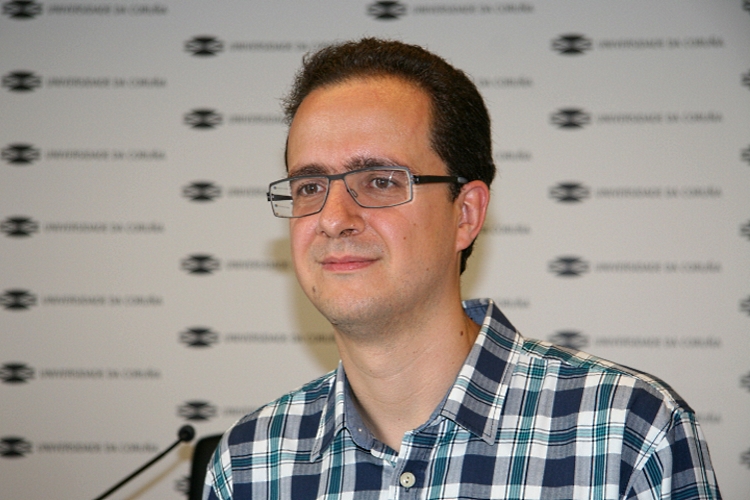
Carlos Gómez, winner of an ERC Starting Grant
3. In order to conduct your project, over the next 5 years you will be accompanied by your research team. Can you tell us about their research backgrounds, where they are from, etc.
My team is made up of two postdoctoral and two predoctoral researchers. The postdocs are both Galician, with International PHDs in Computer Science from the UDC with theses in the subject of Natural language, which gives them very useful experience for this project. The predoctoral students come from further afield. One is Polish, although she studied computational linguistics in both Norway and the Netherlands (with qualifications in both Philology and Computer Science). The other is Scottish and he studied Classics and Physics, obtaining his doctorate in Nuclear Physics and did a Master’s Degree in Computer Science, and he now wants to obtain a doctorate in this project. As you can see, it is an international and interdisciplinary group, which I think is very suitable in order to deal with computer processing of human languages.
4. Besides being the place where you work as a professor, the University of A Coruña is the institution in which you will conduct your Fastparse project. What strengths of the University would you highlight?
It is a young, relatively small university, which means that the relationship between the institution and the researchers is quite close, and it is making an effort to encourage and support quality research with relevance on the international stage. In addition, in the field of computer science we have great facilities, with a research centre dedicated to ICT, and a large number of relevant research groups.
5. What made you choose the UDC as your host institution?
There were various factors at play. I would highlight the support that the UDC has offered me both in preparing my request and now in conducting the project. The fact that this is a city that I like and one which allows me to be near loved ones also influenced my decision. And, of course, the desire to take advantage of the opportunity to work in my country and create employment for researchers in it. It is something necessary in a situation in which so many have to move abroad for their research due to lack of funding.
6. What advice would you give to those researchers who want to apply to one of the ERC grants?
Above all, it is worth taking the chance, even though the amount of requests that are granted is quite low. Even if your request is turned down, I do not think it is time wasted because you learn so much from the process, and I am speaking from a personal point of view as I was successful at the second time of asking. In addition, I would advise them to prepare the request well in advance and with attention to detail, and to accept the opinion of other people, both experts in the subject of the projects and non-experts, as the evaluation panels can include a range of diverse profiles.
Below you can find a series of resources:



